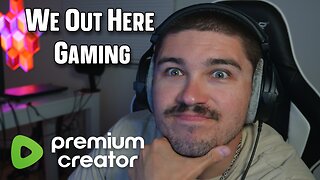Premium Only Content

Talking to Kids About Online Dangers, Impact on Relationships, and Addiction with Joshua Shea
Talking to Kids About Online Dangers, Impact on Relationships, and Addiction with Joshua Shea
#LifeEnthusiast #health #wellness
When we think about betrayal, we often picture the shattering of trust in our closest relationships—a violation that cuts deeper than most other losses. In a recent conversation on the Life Enthusiast Podcast, Martin Pytela sits down with Joshua Shea, a coach specializing in pornography addiction and betrayal trauma, to discuss just how far-reaching these wounds can be and what paths exist for healing.
Why Betrayal Hurts So Deeply
Martin opens the dialogue by framing betrayal as a unique trauma. Unlike other losses, he says, betrayal “kills both the future and the past.” When a loved one breaks our trust, it doesn’t just change our plans; it makes us question everything we thought we knew.
Joshua elaborates on the devastating ripple effects. When someone discovers that their partner has hidden a pornography addiction, it’s not just about the behavior—it’s about the years of deception. This kind of revelation brings on a crisis of self-doubt: “If I believed this lie, what else could I be wrong about? How can I trust my judgment, or this person, ever again?”
The Spectrum of Betrayal and Cheating
One unique aspect of Joshua’s work is addressing the broad spectrum of what different people consider “cheating.” For some, even glancing at an attractive stranger might feel wrong; for others, boundaries are drawn at direct acts of intimacy. The key, Martin and Joshua agree, is making explicit agreements in relationships and being honest about boundaries—and then upholding them.
Joshua points out a critical distinction: if you make a promise to avoid pornography and then secretly break it, that’s a form of cheating. The emotional fallout for the betrayed partner can be just as intense as any physical affair.
Unpacking Pornography Addiction
A central part of Joshua’s coaching work addresses not just stopping problematic behavior but understanding why it started. Most often, he finds, addiction isn’t rooted in sexual desire as much as it is in unresolved pain, trauma, or anxiety—experiences often dating back to childhood. Pornography becomes a go-to coping mechanism, a quick fix for emotional wounds.
Martin and Joshua discuss the shocking normalization of pornography use in society: research shows that over 90% of men and 60% of women who use the internet view pornography monthly, even if only occasionally. However, around 15-18% of men and 8-12% of women develop problematic or addictive patterns. As high-speed internet and smartphones proliferate, younger and younger children are being exposed, setting up potential lifelong struggles.
How Pornography Addiction Impacts Relationships
Beyond betrayal, pornography addiction creates real, tangible problems for couples. Joshua shares startling statistics about “porn-induced erectile dysfunction,” now affecting as many as 20-25% of young men, compared to just 2-3% a generation ago. Early, excessive exposure can warp expectations about sex and intimacy and stall emotional development. In relationships, this leads to disappointment, confusion, and—far too often—trauma.
Joshua also highlights how, for some women, discovering a partner’s porn use feels as devastating as physical infidelity. The secrecy, lies, and social stigma often prevent people from seeking help, perpetuating isolation.
A Path Forward: Healing and Hope
So what can couples and individuals do? Joshua likens his coaching to shining a flashlight on a dark path. The recovery process uses tools from cognitive behavioral therapy, trauma mapping, and open communication to address both the behavior and its roots. The journey takes time—about four to six months on average—but the most important first step is reaching out for support.
Martin and Joshua’s conversation ends on a hopeful note: recovery is possible, and no one needs to go through it alone. By talking openly about these taboo topics, we can reduce the shame, support one another, and find healthier, happier ways to move forward.
If you or someone you know is struggling with pornography addiction or betrayal trauma, know that help is available. Speaking with a coach like Joshua can be the first step towards reclaiming trust, healing old wounds, and building stronger relationships.
Timestamps:
00:01 Introduction & Betrayal
01:13 Betrayal’s Impact on Trust
03:24 Forgiveness & Reframing
04:39 Role of Coaching
06:03 Betrayal Trauma Stages
07:50 Cheating & Boundaries
10:07 Trust-building & Disclosure
16:21 Internet Access & Usage Rates
19:56 Causes of Addiction
29:12 Therapy & Trauma Mapping
32:50 “Corn” Euphemism & Stigma
34:30 Coaching Process & Duration
36:25 Early Exposure Differences
42:18 Shame & Demographics
44:37 Conclusion & Contact Info
Connect with us:
Website:
https://www.life-enthusiast.com/?ref=024
https://www.life-enthusiast.com/articles/product_brand/exsula-superfoods?utm_campaign=cherub&utm_medium=youtube&utm_source=exsula-superfoods
Facebook:
https://www.facebook.com/LifeEnthusiastContact
Twitter:
https://twitter.com/lifentco
Youtube:
https://www.youtube.com/user/lifentco
Rumble:
https://rumble.com/user/lifeenthusiastcoop
Telegram:
https://t.me/lifentco
#LifeEnthusiast #health #wellness #podcasts #education #homeopathy
#HighQualityIngredients #NextLevelHealth #SupplementSupport #HerbalHealing #HollisticWellness #NaturalRemedies #AlternativeHealth #TraditionalMedicine #HealthJourney #WellnessSolution #HealthAndWellness #HealthyLiving #HealingPath
#MartinPytela #ScottPaton
-
 0:28
0:28
Life Enthusiast
1 day agoWhite Foods: Why They're Processed & What's Removed
301 -
 LIVE
LIVE
iCheapshot
3 hours ago $0.04 earnedBack From Vacation! | Checking Out Skate Maybe Some Boarderlands 4
234 watching -
 LIVE
LIVE
Jorba4
2 hours ago🔴Live-Jorba4- Borderlands w/ The TRIBE
96 watching -
 54:43
54:43
Glenn Greenwald
6 hours agoGlenn Reacts to Netanyahu's UN Speech; PLUS: Q&A on Trump's Russia/Ukraine Policy, the Tom Homan Investigation, and More | SYSTEM UPDATE #522
72.9K39 -
 43:54
43:54
Donald Trump Jr.
4 hours agoJames and the Giant Breach, Plus Explosive J6 Revelations | TRIGGERED Ep.277
155K176 -

MadHouse_
4 hours agoFRIEND FRIDAY! - Garys Mod ? im pretty sure im gonna lose at this game
23.8K5 -
 2:26:51
2:26:51
blackfox87
4 hours agoBorderlands Grind Continues | PREMIUM CREATOR | #DisabledVeteran
23.3K1 -
 DVR
DVR
Mally_Mouse
5 days agoFriend Friday!! 🎉 - Let's Play! - Gary's Mod!
15.9K -

ZWOGs
10 hours ago🔴LIVE IN 1440p! - Resident Evil 3 First Playthrough, GMod w/ Mally_Mouse & Friends - Come Hang Out!
9.94K3 -
 1:00:55
1:00:55
BonginoReport
9 hours agoJames Comey Indicted! - Nightly Scroll w/ Hayley Caronia (Ep.143)
146K113